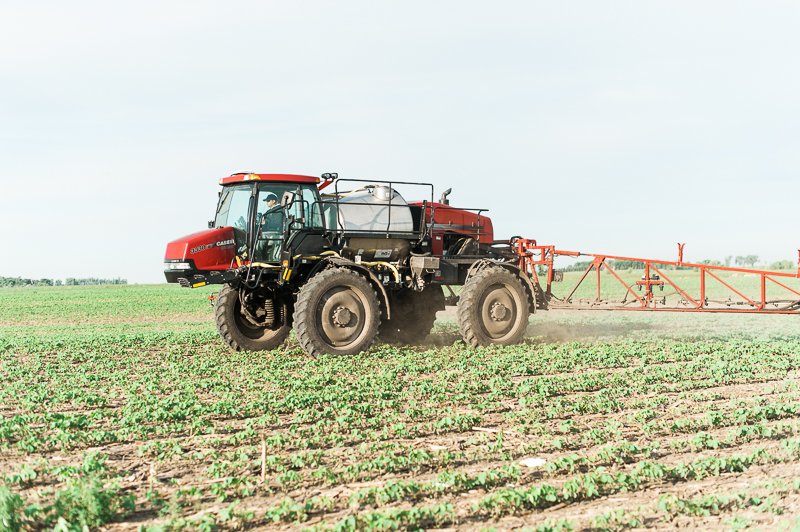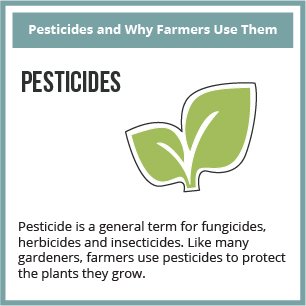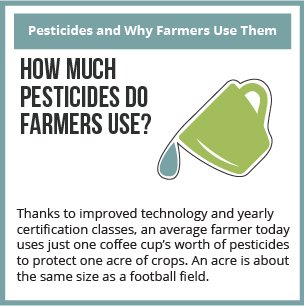What Are Pesticides and Why Do Farmers Use Them?
You’re driving from Sioux Falls to Mitchell to visit friends, and you see a large piece of equipment with wide arms and big tires driving through the soybean field toward your vehicle. After a closer look, you see it’s spraying something. Is it water? Is it a pesticide? Should you be concerned about your safety?
Your answer might depend on what you know about pesticides and how farmers apply them. Since most people don’t get a chance to stop by a South Dakota farm to get the scoop firsthand, we decided to bring the process to you. First, let’s start with the basics: What are pesticides and why do farmers use them?
Three Main Types of Pesticides
Paul Johnson is a weed science coordinator at South Dakota State University in Brookings. Paul grew up on a crop and livestock farm near Sisseton. His dad served on the county’s noxious weed board and Paul started spraying crops at the age of 12. It’s easy to see why Paul describes himself as a “weed-fighter,” even though pesticides aren’t just used to eliminate weeds.
“Pesticides is a term used to describe a substance that controls weeds, insects, diseases and other organisms to protect and grow healthy crops. The three main types used on South Dakota farms are herbicides to control weeds, insecticides to control harmful insects and fungicides to control certain types of diseases.”
Why Farmers Use Pesticides
Though they may seem small, insects, weeds and diseases can quickly take over fields and cause big losses. Farmers use pesticides to stop the damage and save their crops. To act quickly and safely, they need the latest research and product information at their fingertips.
That’s where Paul and his team of extension specialists come in. They conduct field research throughout the year and share what they learn online and in educational sessions to help farmers identify and treat the problems they see in their fields.
“Part of my job is to monitor crops and compare what I see to previous years. We alert farmers if we see a problem so they don’t get caught off guard. Top pests he watches for are soybean aphids and grasshoppers that devour plants and grasses quickly. Waterhemp, kochia and marestail are weeds that take over fields and compete with corn and soybeans for sunlight, water and other resources.”
Pesticide Certification, Safety and Using Less
You might ask yourself, “Can anyone just climb up in the sprayer and start applying pesticides?” The fact is, South Dakota farmers must be certified to apply pesticides. They attend classes to help them select products, learn how to apply them and make plans for each growing season. If they have an unexpected issue, they talk with specialists like Paul to make the safest choice.
“Pesticide safety is a big concern for all farm families. Thirty years ago, we spent a lot of time talking with farmers about having the right safety gear to apply pesticides. Today, we use pesticides that are much less toxic. We still need to take precautions, but I’m confident we’re safer than ever.”
In addition to pesticides being safer, farmers today also use less to get the job done.
“When I started my career more than 30 years ago, it was common to use approximately two to three quarts of pesticides on one acre of land,” explained Paul. “An acre is about the size of a football field. Now some pesticides are applied at only two to three ounces per acre. Most of what you see being sprayed on the field is water.”
Now that you know more about pesticides and why they’re used on the farm, should you be worried when you see a sprayer in action? We’ll find out in our next blog when we go behind the spraying scene and get into the field with Lake Preston farmer Paul Casper. In the meantime, here are some great resources on pesticide use and how they affect your food.




